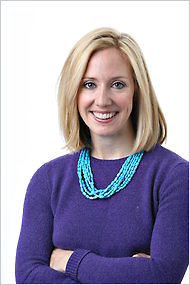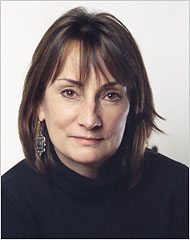Shell Games: Following the Money in High Priced Real Estate
By Jackie Faye June 24, 2015
Perched on the southwestern edge of Central Park, the Time Warner Center probably has some of the best views in New York City. But who is behind those windows? Who owns the multi-million dollar condos that enjoy those views? It took New York Times investigative reporters Louise Story and Stephanie Saul more than a year to answer that question, and still some mysteries remain.
Story and Saul uncovered more than 200 shell companies that have purchased condos at the iconic complex. Foreign nationals own nearly 40 percent of the Time Warner Center condos, they found, including more than a dozen that have been the subject of government inquiries. Current laws do not require real estate agents to look into the buyers so they ask few questions.
Unfortunately, Time Warner Center is not unique in this respect. Story and Saul also found that nearly half of the most expensive residential properties in the United State are bought through shell companies, which are often intended to hide the identity of the buyers.
A graduate of Columbia Journalism School, Story started as an intern at the New York Times in 2005 and just three years later was one of the paper’s lead reporters chronicling the financial crisis of 2008. One of her projects was a finalist for the 2010 Emmy Awards and another was a finalist for the 2009 Pulitzer Prize in Public Service. In 2012, she worked on a project about state and local business subsidies that was awarded the Silver Barlett & Steele award. CoveringBusiness.com previously interviewed her about that coverage.
Story’s colleague Saul has worked at the New York Times since 2005. A Mississippi native, she graduated from the University of Mississippi with a bachelor’s degree in journalism. In 1995, she won the Pulitzer Prize in investigative reporting for a series she and Brian Donovan wrote for Long Island newspaper Newsday on abuse of disability pensions by Long Island police.
I recently spoke with Story about their joint investigation. Below is an excerpt.
Jackie Faye: What made you decide to look into this subject? What was the origin of the story?
Louise Story: I was interested in the general topic of money flowing more secretly around the world and when I began reporting on that, I found that much of the money is coming to the United States and ending up in real estate. That led me to focus on real estate and my colleague, Stephanie Saul, and I chose Time Warner as an iconic – and secretive – condo complex to write about.
Faye: Where did you begin your reporting?
Story: I began by talking with experts on secretive money flow – people steeped in areas like shell companies, private banking and asset forfeiture.
Faye: What was most challenging about reporting for this project?
Story: We had to uncover the owners behind so many more shell companies than we could write about. We broke through the secrecy of more than 200 shell companies, but in the project, we highlighted a fraction of those owners. Unraveling each shell company was very time intensive—sometimes we spent weeks on one shell company, only to decide not to focus on that particular condo owner. However, discovering the identities of as many owners as possible in our reporting allowed us to make statistical statements, like what percentage of the owners are foreign, what percentage have been involved in government investigations, and so on. It allowed us to clue readers in on how representative the people we wrote about were.
Faye: How does working jointly with another reporter on a story impact the way you work? How do you break down the reporting and writing responsibilities?
Story: Working with Stephanie was a wonderful experience. She is the best reporter I’ve ever met in terms of digging through court records. She is tenacious, and she is skeptical. We both brought different qualities to the project, and that made it stronger. We split the reporting and writing pretty much down the middle.

Louise Story
Faye: What were your most significant interviews?
Story: We developed a few insider sources who were able to provide confidential names of owners that never would have been found in public records. They were sort of the “deep throats” of the project. Obviously, I cannot say more about them.
Faye: Anything that really surprised you about the reporting process or your findings?
Story: This project really had two phases—and that’s what made reporting it out so interesting. First, we had to figure out the names of the people behind the shell companies that owned at Time Warner Center. Then, once we knew their names, we had to figure out who they actually were. Many of them were people we were not very familiar with and researching their backgrounds took enormous time with sources in their countries, often in foreign languages. So phase one was more the investigative, sleuth work, and phase two was a more like reporting a profile.
Faye: Can you walk me through how you tracked down the individuals behind the shell companies? Were you able to speak with any of these individuals?
Story: Breaking through each shell company was its own puzzle and most were solved by combining multiple clues. For instance, in one shell company, we found a name of the owner in an import/export record, but the record didn’t list the condo unit number, only the Time Warner address. The import record also didn’t prove ownership of the unit, just affiliation with it. Then, we found the name of that person’s accountant listed in court documents in a case that had nothing to do with real estate. Then we found that accountant’s name on incorporation papers for the shell company that owned the unit. Then we talked to an inside source who wouldn’t tell us the owner’s name, but when we said the name based on those other clues, that source confirmed it. Sound exhausting? Well, this multi-step process was typical for us, over and over again.
We tried to contact all owners in the building. And we talked to a bunch of them.
Faye: In the story you mention that U.S laws make it easy to move large quantities of money through shell companies, making it easy for wealthy foreigners to make multimillion-dollar purchases with few questions asked. Can you expand on how U.S. laws allow this to happen, and are there any lawmakers who are taking action to change these laws?

Stephanie Saul
Story: There are three key loopholes in the United States financial system that can be used to move questionable money. One is an exemption the real estate industry was given over a decade ago from complying with the Patriot Act’s requirement to screen foreign buyers who are affiliated with political officials. A second is language in “know your customer” banking rules that allows banks not to find out who is behind shell companies that open bank accounts. The third loophole is the fact that states in the United States do not require the real owners of shell companies to be disclosed to the public or sometimes even to law enforcement.
There have been efforts in Congress to require more disclosure of the people behind shell companies. These efforts have been led by retired Senator Carl Levin, Sen. Chuck Grassley and Rep. Carolyn Maloney.
Also, this spring, U.S. Treasury officials have said they are working on bringing more transparency to shell companies and that they are also considering whether the real estate industry should be required to do more due diligence.
Faye: What was behind the decision to translate this particular story to so many other languages (Malay, Chinese, Spanish, Russian)? Did you get a lot of readers in other countries? Did anyone who knew the individuals named in the articles contact you all after the story?
Story: We wanted people in those countries to be able to read our work. This reporting was global—wherever the facts took us, we went. So it should be global in readership. We received a huge slew of foreign reader comments via email and social media. In addition to translating summaries of the stories into other languages, we also did Facebook and Twitter posts in those languages.
Faye: What do you hope the impact of the story will be?
Story: I always hope that my stories will be read by lots of people and will in some small way change the way they think about the world. I think that’s already happened with this project.
Faye: Can you tell me anything about what investigations are to come?
Story: The nature of investigations are that they are secretive, but my colleague Stephanie has already published another major story. It was about Chinese officials moving money into the United States.
You can read the five part series about the secret wealth within the Time Warner Center using the links below:
*****
Jackie Faye graduated from Columbia University with a MA in business journalism in the spring of 2015. Previously, she reported in Norfolk, VA at Newschannel 3 (CBS), Raleigh, NC, at NBC-17, Columbia, SC at WIS (NBC), and Oklahoma City, OK. She has a decade of experience in journalism. Media General honored her coverage of drug shortages in 2012. After her report aired, a federal class action lawsuit was filed on behalf of cancer patients who could not access lifesaving chemotherapy drugs. She is a graduate of Georgetown University’s Institute of Political Journalism.
This entry was posted on Wednesday, June 24th, 2015 at 2:03 pm. It is filed under Behind the Story, Featured, investigative journalism, Q&As and tagged with Louise Story, New York Times, real estate shell companies, Stephanie Saul, Time Warner Center.
You can follow any responses to this entry through the RSS 2.0 feed.

 Time Warner Center ©
Time Warner Center ©

